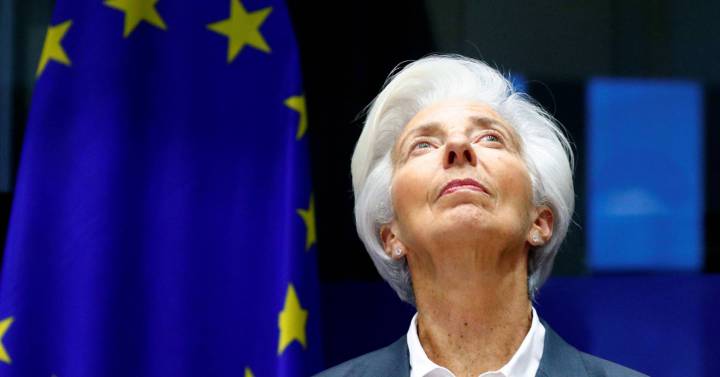The Euribor at 12 months February ends with a significant rise that moves away from its historical lows and confirms the change in trend of the index in the face of the foreseeable increase in interest rates in the euro zone. The indicator, key to calculating variable mortgages in Spain, places the monthly average (in the absence of Monday’s session) at -0.335% compared to -0.477% in January and -0.501% a year ago, Way that will make mortgage loans more expensive for the second consecutive month.
Citizens who have to review their variable loans this month will pay an average of 150 euros more per year for their mortgage. For a loan of 150,000 euros over 30 years with Euribor plus a difference of 0.99%, the monthly installment will go to 541.77 from the previous 529.96, which means 11.81 euros per month or 141.72 euros per anus.
After six years in negative, the Euribor has staged a rebound in February that has taken it to values similar to those of April 2020, when the indicator suddenly climbed due to the pandemic. However, instability has dominated. After remaining stable the first 10 days of the month, as of the 11th the Euribor shot up to -0.283% after the president of the European Central Bank (ECB), Christine Lagarde, will leave the door open to raise interest rates this anus. This Friday, one day after Russia’s invasion of Ukraine, it fell to -0.348% in its daily price.
“The Euribor has rebounded from the minimum level of -0.5% to the sound of the interest rate curves and the process of monetary normalization that seems to be beginning worldwide due to the escalation of inflation,” says José Lizán, manager of assets of Nordkapp Management, which explains that it was at its last meeting when the ECB began to show some concern about the transitory nature of inflation and “it was at that moment that the Euribor skyrocketed”.
The CaixaBank analysis team contemplates a first rate hike of 25 basis points, at the latest, in the fourth quarter of this year, which will be accompanied by two other increases of 25 basis points in 2023. As for the 12-month Euribor , the projection is that it enters positive territory at the end of 2022 and is “somewhat below 100 basis points” at the end of 2023.
“It will be a visible but also moderate rise,” the entity’s CEO, Gonzalo Gortázar, recently indicated, stressing that “the most representative thing is the change, after many years with negative interest rates,” to normality “with interest rates very low”.
From BBVA they maintain that the rise in interest rates will be made gradually and at the beginning of 2023 they would be around 0% and at the end of that year at 0.75% or 1%.
However, the forecasts could again be altered by the crisis in Ukraine after Russia has started the invasion of the country. “After two years of uncertainty due to Covid-19, it seemed that the economy was beginning to recover, what is more, we have ended 2021 with the best home sales data since 2013, however, now we are facing another moment of uncertainty with the war in Russia and we will have to see how the ECB and the markets react”, explains the director of Mortgages at iAhorro, Simone Colombelli.
Thus, the next few days will be key to the evolution of the index. On the one hand, the conflict in Ukraine threatens to worsen the inflation and the economic recovery, which could keep the rise in rates away. On the other hand, in March the ECB’s emergency debt purchase program ends. In the following months, the rate of purchases will be lower, so that little by little the stimuli will be eliminated in line with what the Federal Reserve has done in the United States. The ECB meeting will be key in determining which path monetary policy can now take. “For the Euribor to continue appreciating, the ECB needs to raise deposit or interest rates,” says Joaquín Robles, an analyst at XTB.
As for mortgages, the escalation of the Euribor not only makes variable loans under review more expensive, but also forces banks to reformulate their offer. Fixed rates are expected to rise, albeit slightly, and spreads to improve.
–


